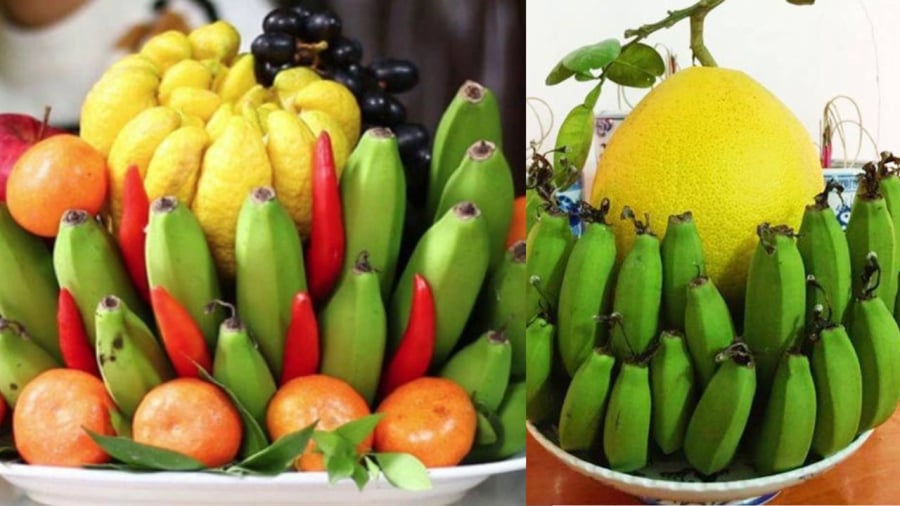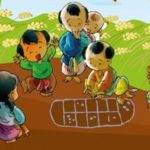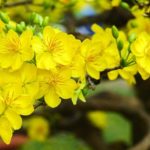The significance of offering banana as an incense?
Banana is a well-known fruit offering in Vietnamese culture, especially in the northern region. In the northern region, bananas are an essential fruit in the five-fruit tray, especially during Tet (Lunar New Year) and important family rituals such as ancestor worship and weddings. Bananas are considered the most important fruit on the ancestral altar. Additionally, there may be pomelos, oranges, mandarins, pears, apples, mangoes, chilies, kumquats, Buddha’s hand citrons, watermelons, coconuts, etc., depending on the family. However, the common feature among people in the northern region is the need for bananas during Tet.
The preferred bananas for the ancestral altar in the northern region are green bananas and twisted bananas (dwarf bananas). These bananas are long, large, curved, and can hold other fruits. Carefully chosen bananas should have stems and be green, but not unripe, with no dark spots or scratches that leak sap. The number of bananas on the bunch should be odd, which is given priority over even numbers.

In the ancestral tray of the northern people, bananas symbolize protection and care, representing good luck and family unity. It is believed that ancestors’ spirits will provide protection and good luck to the family and bring prosperity and luck in business.
However, many families, especially those in the southern region, avoid offering bananas.
Why do many families avoid bananas?
Most families avoid offering bananas due to their symbolic meaning in the language used during ancestral worship. In the cultural practice of ancestor worship, offering items should have positive and meaningful names. Similar to many families not offering lilies because they fear separation or not offering avocados because they fear their ancestors’ disregard, some families also avoid offering bananas due to the language-based taboo.
Linguistically, bananas are associated with unfortunate and negative meanings. The word for banana implies a lack of prosperity, unwanted outcomes, and difficulties. In southern dialects, banana is also pronounced similarly to the word for “begging for trouble” in the context of the Lunar New Year.
Therefore, many families, not only in the southern region but also in other regions, avoid fruits with names that carry negative connotations, such as bananas and oranges (unfavorable oranges), pears (slow movement)…

Due to these linguistic influences, the ancestral tray in the southern region usually does not include pomelos, oranges, or pears. Instead, it may consist of Cau (dracaena), Vu (coconut), Du (papaya), Xai (mango), Sung (fig), or Cau (dracaena), Vu (coconut), Du (papaya), Thom (sugarcane).
However, in today’s cultural exchanges, people from different regions live together and blend their cultures. Therefore, sometimes the five-fruit tray in some families does not strictly follow any specific region’s customs.
But if you are a newcomer or a new daughter-in-law in your husband’s family, it is important to have some knowledge of local customs and beliefs within your own family to have an appropriate ancestral tray, avoid any unlucky situations, and understand the family dynamics to ensure a joyful Lunar New Year. It is essential to choose offerings based on the family’s language symbolism or local customs, but the most important thing is that everyone in the family has a shared understanding and consciousness. Alternatively, if you and other family members have different beliefs, try to put yourself in their shoes to understand their perspective and where their views come from. This will lead to more empathy and harmony, preventing disputes among siblings over offerings on the ancestral altar and maintaining positive energy, as arguments and conflicts over ancestral offerings would be the most unfavorable in terms of feng shui.
This information is for reference and contemplation purposes only.





































